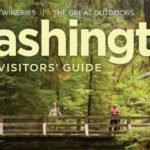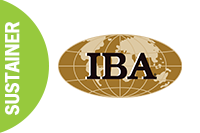By Nicole Vukonich
Looking back on the 2019 legislative session, it was record breaking. With one of the largest incoming classes of freshman legislators in years, to having the greatest number of women in office since 2000, to breaking the ceiling of the $50 billion-dollar state operating budget mark, to the number of total bills introduced, to ending the 105-day long session on time for the first time in a decade, it was unprecedented. The Washington Hospitality Association set records too: For the first time ever, members and their employees sent their lawmakers more than 10,500 emails in response to an action alert.
With strong Democratic majorities in the House of Representatives and the Senate, Democrats this session had a clear mandate from voters to implement many of the policies that failed to pass when the majorities in both chambers were more evenly divided. This session saw new leadership in the Senate Democratic caucus with Sen. Andy Billig of Spokane elected majority leader, while Senate Republicans retained Minority Leader Sen. Mark Schoesler of Ritzville. In the House of Representatives, Democratic Speaker Frank Chopp of Seattle announced he would step down after more than two decades as speaker. A new speaker will be elected by House Democrats this summer. House Republicans also retained Rep. J.T. Wilcox as their minority leader.
[expander_maker id=”1″ more=”Read more” less=”Read less”]
For legislative session veterans, this session was the fastest paced long session in recent memory. Typically, long sessions are more of a long distance run rather than a sprint. With an average of more than 100 bills introduced daily, during the first two weeks there were a lot of bills to read and understand.
The Washington Hospitality Association State Government Affairs team was there and prepared every step of the way. From testifying on bills in committee, to meeting with legislators, to encouraging members to share their stories and experiences with lawmakers.
Overall, the hospitality industry in Washington state fared very well this session. The State Government Affairs team achieved 84 percent of the policy goals identified on the priority issues matrix adopted by members, in December 2018. What was predicted to be a challenging session with many obstacles was not as bad as predicted, and the association was well positioned to succeed.
As a member-driven association with our mission to “deliver wins for the hospitality industry,” here are some of the highlights from the 105-day 2019 legislative session.
#WINS
Legislation brings tax fairness and consumer safety protections to short-term rental operators and platforms (House Bill 1798)
This year, with a focus on affordable housing and bringing equity to the lodging industry, the association worked to introduce and pass a bill that brought long sought after parity to unlicensed, unregulated short-term rentals. Fortunately, the team was aided by the Marketplace Fairness Act and the Wayfair Decision – two significant pieces of legislation that authorize the Department of Revenue to collect data and audit large online short-term rental platforms and do away with their “voluntary tax collection agreements.” In addition to the Department of Revenue now collecting individual operator tax information, the bill requires short-term rental operators or the platform to collect and remit all state and local taxes (including local lodging tax), adhere to basic health and safety standards and acquire liability insurance.
Protecting hotel and motel workers who work alone, providing safety devices (Senate Bill 5258)
A bill concerning isolated workers gained our support this year, aligning with the goals and direction set by our members. The bill, modeled after the American Hotel and Lodging Association’s 5-Star Promise, requires hotels and motels who employ housekeepers and room attendants who spend a majority of their working hours alone, to adopt an anti-sexual harassment policy, provide anti-harassment and discrimination training and equip employees with a safety device capable of summoning help. Our industry’s efforts to ensure our employees are protected and safe is unmatched.
Defeating a statewide restrictive scheduling requirement (House Bill 1491/Senate Bill 5717)
This session, lawmakers in the House and Senate proposed to mandate how employers may schedule their employees. For the hospitality industry, schedule flexibility is one of the foundational reasons people choose to enter careers in this line of work.
Future grant opportunities for the Washington Hospitality Association Education Foundation
This governor-led initiative focuses on career connected learning opportunities for youth and career readiness for those do not choose the path of a four-year university. Creating a completely new and robust program like this takes a significant amount of funds, which most of the debate centered around. After weeks of budget debate, the Career Connect Washington initiative was allocated $11.5 million in the agreed upon budget, through a B&O surcharge on some businesses. In the months ahead, the Washington Hospitality Association Education Foundation will be able to apply for competitive grants through the Employment Security Department to help promote career connected learning programs. The State Government Affairs team, on behalf of the association, supported the underlying policy but opposed the funding mechanism of the bill.
A state budget with no new taxes aimed at hospitality
For the first time in state history, the two-year state operating budget is over the $50 billion-dollar mark. In fact, the 2019-21 state operating budget will raise and spend $52.4 billion. The increase in state spending is due to larger demands on state government caseloads and investments made K-12 education, behavioral health, affordable housing, wildfire prevention and other costs associated with keeping the state operational. While the state economic revenue forecast reported more than $4 billion in additional revenue than the previous two-year period, the budget will add $830 million in new taxes during the next two years and add $2 billion in the next four years. The new taxes include a graduated Real Estate Excise Tax (REET) to replace the state’s flat tax on all real estate sales. The Business & Occupation tax rate for large banks and travel agents was increased, a tax on vaping products was added, and an automatic sales tax exemption for out of state shoppers was removed. An additional B&O tax rate increase on select professional services and advanced computing businesses will pay for education investments including free college tuition for certain families that qualify. None of these new taxes were aimed at or will directly impact the hospitality industry. Despite multiple proposals from lawmakers introducing a capital gains tax, it was absent from the final budget agreement. While the hospitality industry remained mostly untouched by new taxes, the association remains concerned about the sustainability of rapidly increasing state spending at the current rate.
BILLS THAT DID NOT PASS
Establishing the Secure Choice Retirement Savings Program (Senate Bill 5740)
The Secure Choice Retirement Savings Program would set up a public/private retirement savings option for small employers and create an opt-out option for employees. The idea being that for many small employers, setting up an individual retirement savings program is too costly, therefore leaving thousands of employees without any savings for retirement down the road. Although this bill did not pass this session, it opened discussions about employee readiness when it comes time to retire.
Gaining support for hiring events to develop and train the workforce (House Bill 1556/Senate Bill 5808)
As a priority this session, the Washington Hospitality Association supported legislation that would have established a grant program through the Employment Security Department to help fund and support hospitality industry hiring events. Although this bill was unsuccessful in making it past the fiscal committee cutoff, the hearings in both the House and the Senate positively positioned the association and industry as a leader in workforce development. This message held true during the rest of session and the State Government Affairs team looks forward to continuing to educate legislators on all the industry does for its workforce.
Liquor and Cannabis Board (LCB) accountability through an annual rules review (Senate Bill 5296)
This bill would have required the LCB to conduct annual reviews of the rules it does or does not adopt and report the findings back to the Legislature. The bill did not pass this session, however, it shed light on the need for transparency between licensees and the agency. This interim, the State Government Affairs team will participate in a work group with stakeholders and legislators to bring added accountability and transparency to the LCB.
Modernizing resident distillery marketing and sales restrictions (Senate Bill 5549)
For the second year in a row, the Washington Distillers Guild introduced and advocated for legislation that would allow distilleries to open additional tasting rooms where spirituous cocktails could be offered for on-premise consumption, but did not have the same regulatory requirements as other liquor licenses. The association was opposed to this legislation because it would cause parity issues among the existing liquor licenses. During the session, the State Government Affairs team worked with the Distillers Guild to address some of the concerns, but ultimately the Legislature did not act on the final passage of the bill.
Adding diaper changing stations to restrooms (House Bill 1223/ Senate Bill 5156)
This session saw the return of the issue of placing diaper changing stations in restrooms accessible to men and women in restaurants with an occupancy of 60 or more and that have a children’s menu. The Washington Hospitality Association supports providing a safe environment for even the littlest guests, which is why after working with the sponsors of the bill in the House and Senate, the State Government Affairs team was able to update the bill so it would apply to new construction and significant restroom renovations and a phase-in for existing restaurants. The bill did not pass during the 2019 legislative session.
Overall, the 105-day legislative session was a good session for the hospitality industry in Washington state. Over the course of the interim before the next session begins in January 2020, the State Government Affairs team will continue to work on behalf of all members when engaging with state agencies, candidates and lawmakers.
Note: This article was originally published in the July 2019 issue of Washington Hospitality Magazine.
[/expander_maker]



















![Webinar replay! [Ask a Lawyer] Best hiring practices](https://wahospitality.org/wp-content/uploads/2024/05/CatherineHiring-webinar-150x150.png)









